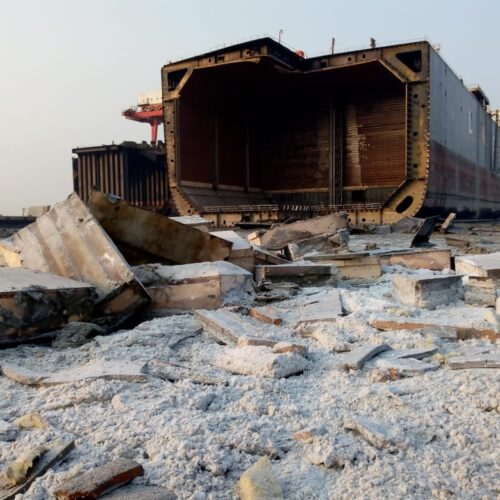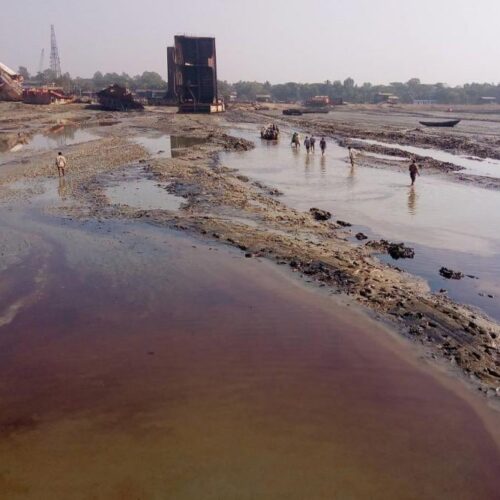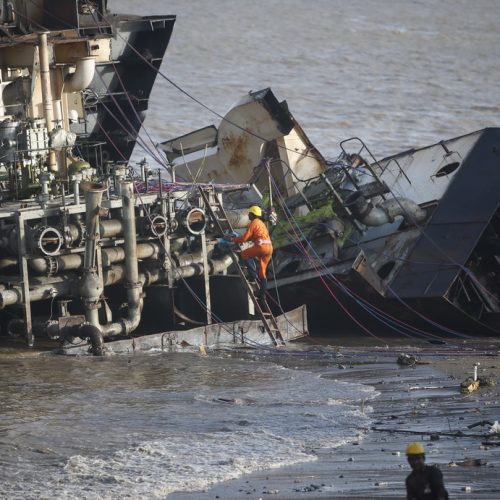Press Release – Turkish EU-listed yards shaken by two fatal accidents
NGOs call upon EU to investigate both
In the last four months, the Turkish ship recycling industry has been hit by two serious accidents. Two workers lost their lives at two separate yards that are included in the EU List of approved ship recycling facilities.
On 3 October 2020, a worker lost his life during the scrapping of two Transocean offshore rigs at Isiksan yard. A handrail broke and fell, hitting the worker at the back of his neck. Last week, on 4 February, another worker died when hit by a steel block which he was torch-cutting in the secondary cutting area of Simsekler yard, where a Carnival Corporation’s cruise vessel is currently being recycled. Both yards were quick to immediately involve the concerned authorities.

According to the EU Ship Recycling Regulation, EU-flagged vessels have to be recycled in one of the currently 43 approved sites around the world. Seven out of the 22 yards operating in Aliaga have so far received EU approval. They recycle only a smaller fraction of the world fleet, but have attracted owners that want to recycle their vessels more responsibly than on the beaches of India, Bangladesh and Pakistan, where the vast majority of end-of-life vessels end up.

The many risks involved in taking large vessels apart need to be managed at sites that can safely use heavy lifting cranes, contain pollutants and dispose of hazardous materials in line with international waste laws. The accident at Simsekler should further prompt a serious evaluation of how mechanical cutting might contribute to reducing risk, including exposure to toxic fumes and release of slag caused by torch cutting.

Related news

Platform News – Worker killed in yard breaking German-owned container ship “Viktoria Wulff”
On 4 December, worker Shah Jahan was killed on the spot at Arefin shipbreaking yard in Chittagong, Bangladesh, where German container ship “Viktoria Wulff” (IMO 9252101) is… Read More

Platform News – SAVE THE DATE: “With Bare Hands” on 3 October 2019 in Brussels
The NGO Shipbreaking Platform invites you to attend the conference With Bare Hands on Thursday 3 October in Brussels (Belgium).
... Read More
Platform News – Violence reaches new level: shipbreaking yard’s private security personnel fire shots and injure seven people
In the morning of 28 March, shipbreaking worker Sumon was killed on a private road inside Kabir Steel yard located North of Bangladesh’s major port city, Chittagong…. Read More

Platform publishes South Asia Quarterly Update #37
Eight workers suffered an accident on South Asian beaches in the first quarter of 2024.
... Read More
Press Release – Bangladesh: shipping firms profit from labour abuse
New report reveals network used by shipowners and shipbreaking yards to circumvent international laws prohibiting the dumping of end-of-life ships on South Asian beaches.
... Read More
Platform publishes South Asia Quarterly Update #19
There were a total of 193 ships broken in the second quarter of 2019. Of these, 146 ships were sold to the infamous scrapping beaches of South… Read More

Press Release – Recent fires at Gadani yards prompt authorities to shut down all shipbreaking activities
On 11 October a tanker caught fire at the Gadani shipbreaking beach that holds a deplorable record of life threatening accidents. Fortunately, no casualties were recorded. Only… Read More

Press Release – Platform publishes list of ships dismantled worldwide in 2021
763 ocean-going commercial ships and floating offshore units were sold to the scrap yards in 2021. Of these, 583 ended up on the beaches of South Asia, amounting to near the totality of the gross tonnage dismantled globally.
... Read More